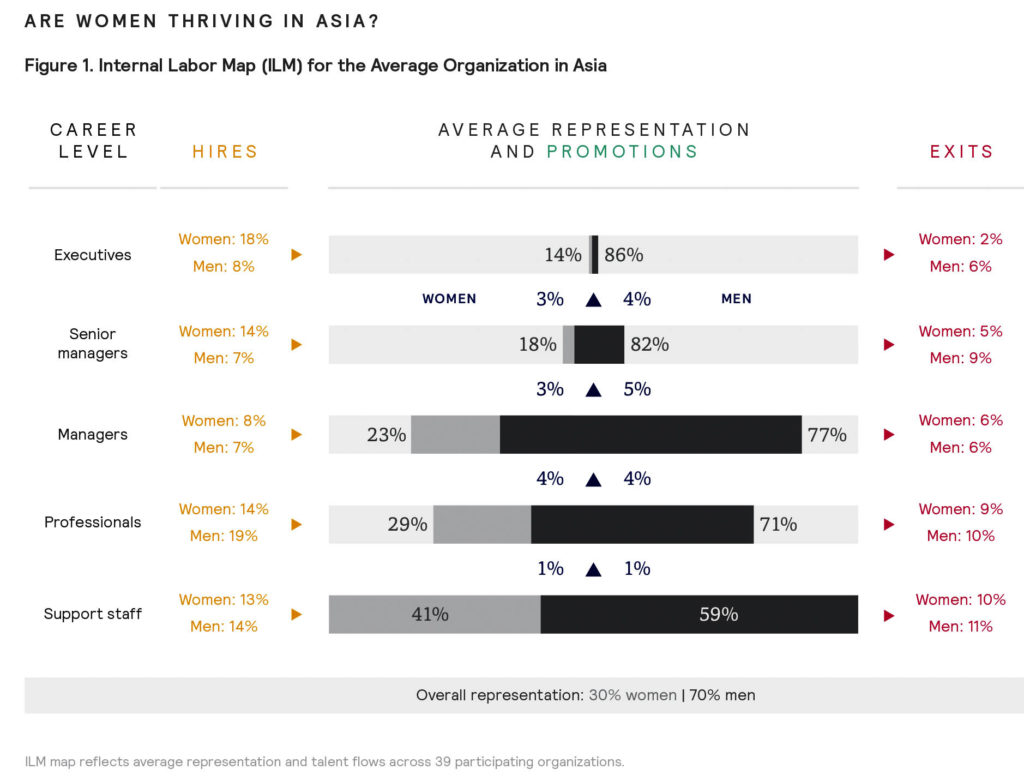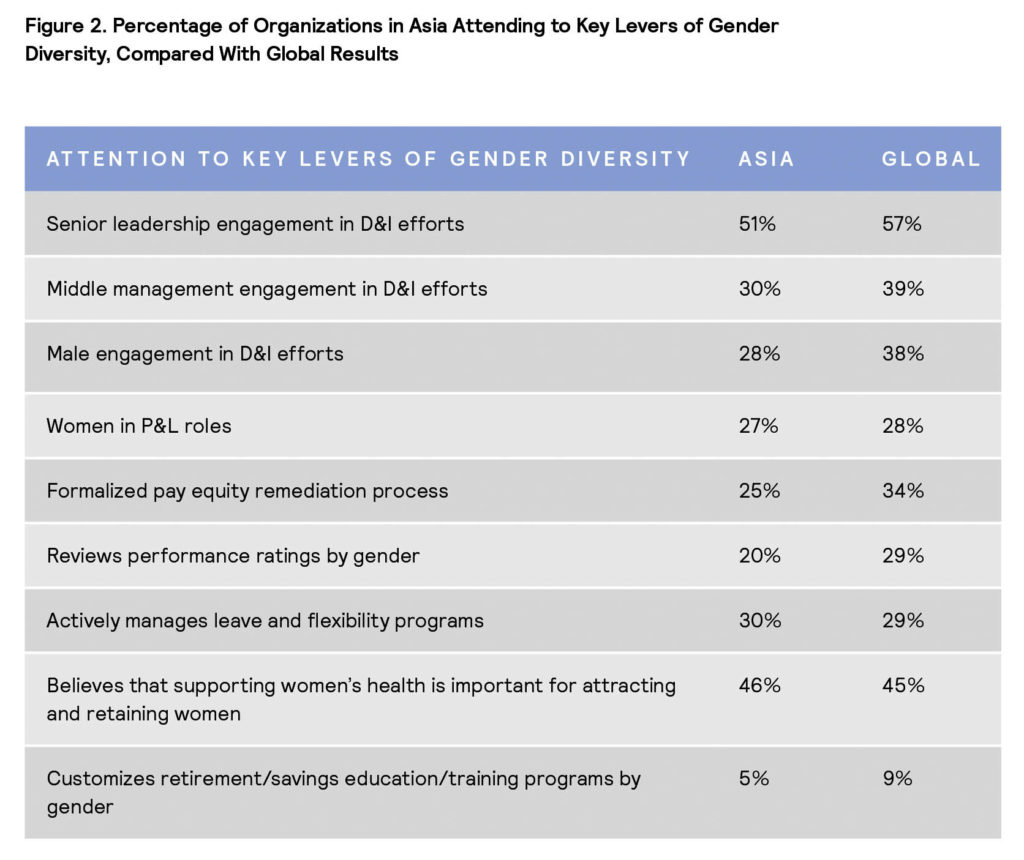Closing the Gender Gap: A Business Imperative

Office goers walk inside the Raffles Place MRT station during rush hour at the central business district area in Singapore.
Photo: Nicky Loh/Getty Images
It’s been more than 40 years since the mass arrival of women in the corporate workforce and 20 years since organizations created their first formal diversity plans. Yet women make up only 35 percent of the average company’s workforce at the professional level and above and only 20 percent of its executives. Even worse, the average organization still isn’t on track to achieve gender equality a full decade from now, according to our When Women Thrive, Businesses Thrive global research.
Women are underused in the workforces of emerging economies. This is due to both “push” factors (lack of career advancement or support on the job) and “pull” factors (pressure to care for children or elders, among others). Although the glass ceiling is cracking in some regions, there is still great work to be done.
Employers have a critical role to play in creating gender parity. The reward will not just be a thriving workforce but thriving businesses able to capitalize on the talents of all to drive innovation and growth. In fact, a significant body of research over the past two decades suggests a link between higher female representation in the workplace and various company performance measures, including better financial performance; higher return on sales, equity and invested capital; higher operating results; better stock growth and more.
Simply put, women bring different insights and skills, leading to products and services that better serve the needs of diverse customers. Although our research begins with women because of the glaring and persistent gap in female workforce representation worldwide, our approach to analyzing and addressing gaps in female participation can be used to maximize engagement of all diverse segments of the workforce.
2016 Research Findings: Asia
Asia is projected to have the lowest representation of women in the workforce by 2025.
Good News
- Hire rates for women at the top of the organization are more than double the rates of men
- Retention rates for women at the top of the organization are also strong, with women two to three times more likely to stay than men
Opportunities for Improvement
- Female representation at all career levels is below the global average
- In the average company, women make up only 25 percent of those at the professional level and above
- Women are less likely than men to be promoted up through the organization
- If current hiring, promotion and retention rates stay constant, female representation will reach only 28 percent at both the executive level and the professional level and above by 2025
- Only 25 percent of organizations have a formalized pay equity remediation process versus 34 percent globally
Looking Ahead
Our research reveals that advancing women in the workplace requires individual and organizational alignment. At Mercer, we call these our “6 Ps” of an effective gender strategy:
Individual
- Personal commitment of leaders at all levels
- Passion to create an inclusive culture
- Perseverance to stick with and modify the strategy, culture and employee experience over time
Organizational
- Proof against what is hurting and what is helping
- Processes that are effectively managed
- Programs that target the unique reasons women are not advancing in an organization
To break through the inertia and accelerate progress, organizations need to effect behavioral change on the individual level—beginning with leaders and progressing peer to peer to create real momentum for change.
We invite organizations around the world, in all industries and from all sectors, to join the growing community of organizations that have embarked on this journey toward a thriving female workforce. Only by engaging the full talents of both women and men can we expect to keep our organizations and societies thriving.
The full version of this piece first appeared on the Mercer website.




